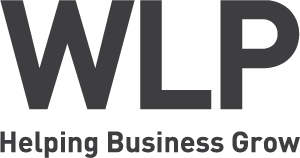The announcement of a rise in employer National Insurance (NI) contributions is a concern for UK manufacturing SMEs. Managing Directors and Operations Directors are faced with the pressure of balancing profitability with rising overhead costs, especially when it comes to meeting payroll commitments. Here we explore how improving productivity can mitigate the negative financial impact of higher NI contributions, and ultimately help your manufacturing business remain competitive, profitable, and sustainable.
Contact Bob Hart of WLP now to discuss how this could benefit you and your business, or read on.
The Context: National Insurance Contribution Increase
From April 2025, employers in the UK will see National Insurance Contributions (NICs) increase by 1.2 percentage points to 15% together with a second hit due to the lowering of the secondary threshold (ST) which means employers will start to pay NICs on employees’ earnings from £5,000 instead of the current £9,100 threshold, effectively increasing payroll costs by approximately 3%. For SMEs, this is an additional cost that has placed further strain on already-tight margins. While the increase is designed to fund improved public services, the reality for businesses is that it adds a substantial cost to wages.
For a manufacturing SME, payroll is often one of the largest expenditures. Therefore, any increase in employment-related taxes—such as NI contributions—has an immediate and visible effect on the bottom line. The challenge is not only to absorb this additional cost but also to find ways to maintain or increase productivity and profitability in the face of growing operational expenses.
Productivity: The Key to Mitigating the Impact of NI Increases
While the increase in NI contributions is unavoidable, the good news is that there are ways to counteract its impact. One of the most effective methods is to improve productivity. By increasing the output per employee, manufacturing businesses can offset higher employment-related costs by maximising the value each employee generates. Here are several strategies that can help you achieve this:
-
Streamline Processes with Lean Manufacturing
Lean manufacturing techniques focus on eliminating waste and optimising every part of the production process. By identifying and removing inefficiencies, you can improve throughput without increasing labour costs. Lean principles such as Just-in-Time (JIT), Kaizen (continuous improvement), and 5S (sort, set in order, shine, standardise, sustain) can significantly boost productivity.
Even small improvements in how resources are allocated, and processes are executed can lead to noticeable increases in output. The benefit here is twofold: not only do you maintain competitiveness, but you also reduce operational costs.
-
Upskill Your Workforce
A more skilled workforce is a more productive workforce. Investing in training and development is key to boosting productivity. The more knowledgeable and efficient your employees are, the less time they waste on errors or inefficiencies. Furthermore, employees who feel valued and invested in are often more motivated and engaged in their work.
Upskilling doesn’t always have to mean formal qualifications. Simple measures such as cross-training employees to perform multiple tasks, or providing training on new technologies and techniques, can have a dramatic impact on overall output. A well-trained team is a critical asset that helps mitigate the increased costs of doing business.
-
Leadership Development
For UK manufacturing SMEs, first-line managers are the key to boosting productivity. Well-trained managers improve team performance, reduce downtime, and enhance operational efficiency. They act as the bridge between strategy and execution, translating company goals into actionable tasks. Investing in training equips them with crucial skills in communication, problem-solving, and team motivation, fostering a more engaged and productive workforce. By addressing challenges promptly and effectively, trained managers ensure smoother operations and better resource management.
-
Foster a Culture of Continuous Improvement
A culture of continuous improvement encourages employees at all levels to look for ways to do things better. This could include suggestions for process improvements, new tools, or better utilisation of resources. Implementing a formalised suggestion scheme or fostering an open-door policy where employees feel empowered to propose changes can yield innovative solutions to productivity challenges.
A focus on continuous improvement also promotes a positive working environment, where employees are aligned with the company’s goals. This alignment is essential when facing external pressures, such as rising costs from increased NI contributions.
-
Embrace Collaboration and Teamwork
Collaboration can significantly boost productivity. When departments or teams work well together, resources are used more efficiently, and problems are solved faster. Encouraging cross-departmental collaboration in your manufacturing processes can uncover opportunities for streamlining operations, improving quality control, and reducing costs.
Teamwork, coupled with the right leadership, fosters a sense of ownership and responsibility, which further enhances employee engagement and output.
Conclusion: The Bottom Line
While the increase in employer National Insurance contributions is a challenge for many manufacturing SMEs, it is not insurmountable. By focusing on improving productivity, whether through streamlining operations, Leadership development, or upskilling employees, you can mitigate the impact of these additional costs. Increased productivity means more output per employee, allowing you to offset the higher financial burden without sacrificing quality or customer satisfaction.
If you’re looking for ways to implement these strategies and improve your manufacturing business’s productivity, I can help. I specialise in helping manufacturing SMEs like yours increase operational efficiency and build sustainable growth.
Contact me today for a free conversation to learn how I can help you boost your productivity and start turning the challenge of rising costs into an opportunity to improve your business.
